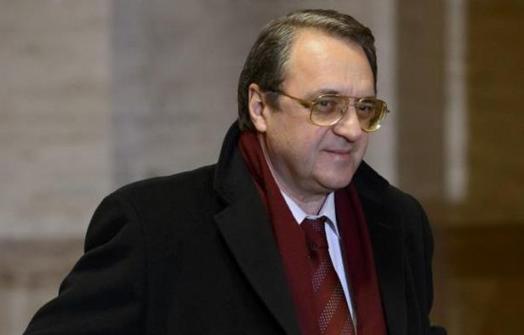Irdiplomacy.ir, an Iranian website that focuses on international issues and Iran’s foreign relations, carried a report on December 7 about the comments of Russian Deputy Foreign Minister Mikhail Bogdanov about the future of nuclear negotiations between Iran and world powers. The following is a partial translation of what Beirut-based Arabic-language newspaper al-Akhbar quoted the Russian diplomat as saying during a recent visit to Lebanon:
“The only knot which is yet to be untied and has put back a final deal between Iran and P5+1 was the timeline for a final accord as well as for the removal of sanctions. Iran wants sanctions swiftly lifted, while America wants an interval to come between clinching a deal and the time it comes into effect. Such matters have brought the forward-moving resolution process of Iran’s nuclear dispute to a halt. Other than that, an agreement has been reached over other questions,” the Russian deputy foreign minister said.
Mikhail Bogdanov would not go into detail about nuclear talks between Iran and P5+1 and just added, “From my perspective, the White House is dealing with some complexity. As a result both negotiating sides have been mired in domestic issues. Based on what we have realized, while there were fierce electoral campaigns in America [to secure seats in the Senate] the Obama-Kerry negotiating team could not tell the American public that they wanted to lift the sanctions against Iran. Because it would have robbed the White House of the trump card it so badly needed in a tougher race at home. Loss of public support would translate into governance with Republicans at the helm on Capitol Hill, they thought.”
He went on to say, “As for the Iranian negotiating team, things did not look any better either. The return of Zarif-led Iranian negotiating team to Tehran with a deal that would keep Western sanctions in place would have resulted in prompt changes to the government and power composition in Iran even though Supreme Leader Ayatollah Ali Khamenei had openly thrown his weight behind Iran’s negotiating team.”
“In fact, both sides are constrained by the stance of hardliners at home. However, the same issue helped both parties to the talks agree on one thing: they both represented the moderate factions of their capitals, despite all known differences that existed between them,” he stated.
“What matters is that an agreement between the two sides was secured which led to their announcement that they needed more time. Time could solve the issue with hardliners on both sides. We have three kinds of sanctions. European sanctions which are in effect for a certain, limited period of time. They are expected to run out before long and are unlikely to be extended. In practice, their expiry would translate into practical removal of sanctions eliminating the need for their lifting.
The same pattern applies to the second type of sanctions which are international ones. American sanctions are the third group which is expected to be discussed over the time left by July1, 2015 when both sides return to the negotiating table. By that time, America is expected to be able to clinch a final deal without having to secure the domestic go-ahead to lift the sanctions. Likewise, Iran could return to the negotiating table without having to deal with unattainable domestic demands and ink the deal. We will be present throughout the whole process, follow up the case carefully and insist on the conclusion of a deal,” he concluded.
